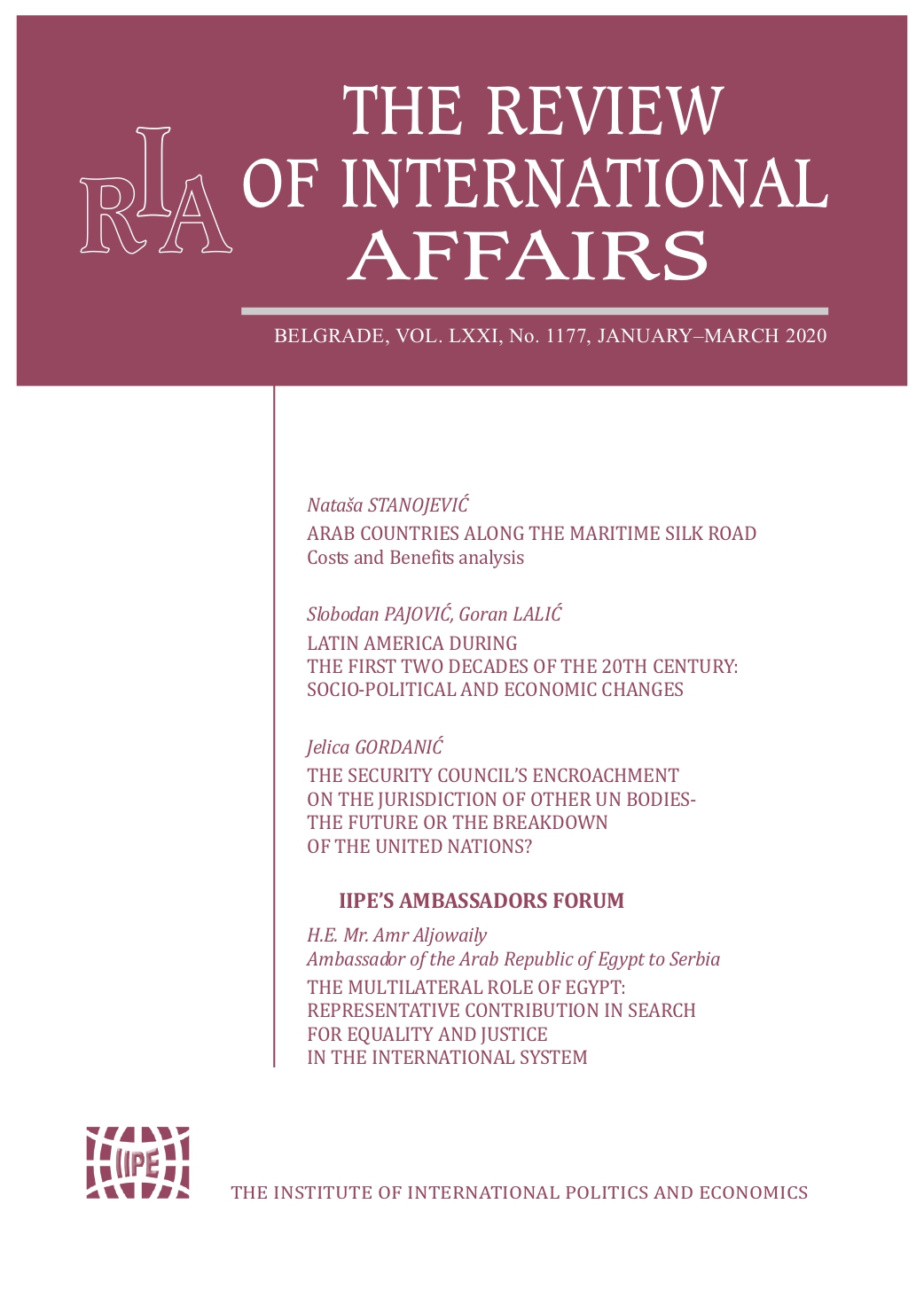Latin America during the First two decades of the 20th century: socio-political and economic changes
Latin America during the First two decades of the 20th century: socio-political and economic changes
Author(s): Slobodan Pajović, Goran LalićSubject(s): Politics / Political Sciences
Published by: Институт за међународну политику и привреду
Keywords: Latin America; South America; economic and political transition; social crisis; ideological division; integration; new international position
Summary/Abstract: The authors are considering the complex socio-political and economic changes that occurred in Latin America during the first two decades of the 21st century. The starting hypothesis is that during this period, significant internal changes took place within the framework of Latin American regionalism, as well as with the regions’ relations with the world. All of these changes developed in accordance with the theory of complex interdependence and open regionalism that relies on neoliberal reforms. Furthermore, the authors have identified external variables that had directly influenced Latin American internal economic, political, and social development. The ideological breakup of the political consensus that existed in this region during the 1990s led to the emergence of new models of integration, cooperation with other blocs in the world, but also to the appearance of the first Latin American emerging power (Brazil). However, the most significant changes occurred in South America, where non-traditional political regimes, including the Bolivarian Revolution in Venezuela, came to power at the beginning of the 21st century. All these regimes were defined as politically and economically anti-neoliberal but trying to adopt new state measures in order to solve deep social crises that convulsed the basis of Latin American democracy. When analyzing these events, the authors define two periods, taking into consideration the election results for evaluating the ideological changes and their consequences. The conclusion is that, at the beginning of the third decade of the 21st century, and after the end of the election cycles in 15 countries of the region, there is a relatively balanced division of power between the progressive so-called leftist regimes and the rightist ones, which were in the majority in the second decade of the 21st century.
Journal: The Review of International Affairs
- Issue Year: LXXI/2020
- Issue No: 1177
- Page Range: 25-41
- Page Count: 17
- Language: English

